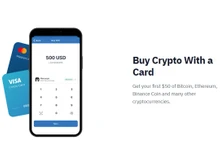When we talk about cryptocurrency wallets, MetaMask and Trust Wallet are two prominent names that come to our mind. Each software offers unique features and functionalities tailored to meet the diverse needs of users. In this comparison, we'll delve into the key differences and similarities between MetaMask and Trust Wallet across various aspects.
MetaMask vs Trust Wallet: Overview
MetaMask is a browser extension wallet initially designed for the Ethereum blockchain but later expanded to support other networks like Binance Smart Chain. It provides users with a convenient way to interact with decentralized applications (dApps) directly from their web browsers.
On the other hand, Trust Wallet is a mobile-based wallet application acquired by Binance, offering support for a wide range of cryptocurrencies and tokens. It allows users to securely store, send, receive, and exchange digital assets directly from their mobile devices.
MetaMask vs Trust Wallet: Pros and Cons
- MetaMask is available as a browser extension for Chrome, Firefox, Brave, and Edge, along with a mobile app for iOS and Android. On the other hand, Trust Wallet is only available as a mobile app for iOS and Android.
- MetaMask does not support the world-famous crypto Bitcoin, whereas Trust Wallet and some other Trust Wallet alternatives support it.
- MetaMask primarily supports Ethereum and Ethereum-based tokens, on the other hand Trust Wallet is compatible with over 100 blockchain networks, including Ethereum, BTC, and Solana.
- Trust Wallet supports a broader range of cryptocurrencies and blockchains compared to MetaMask. This allows you to hold and manage a wider variety of assets in one place, eliminating the need for multiple wallets.
MetaMask vs Trust Wallet: In Terms of Features
- Supported Cryptocurrencies and Blockchains: MetaMask supports Ethereum and EVM-compatible blockchains like Binance Smart Chain, Polygon, Avalanche, and other ERC-20 tokens. Trust Wallet on the other hand, supports a wide variety of cryptocurrencies and blockchains beyond Ethereum and EVM networks. This includes Bitcoin (BTC), Binance Coin (BNB), Tron (TRX), and many others.
- dApps: MetaMask has a wider selection of dApps integrated or available through its browser. This includes popular DeFi applications, NFT marketplaces, and other services built on the ETH blockchain. However, Trust Wallet’s dApp browser does not offer the same level of integration or depth specifically for Ethereum-based dApps.
- Payment Gateway: The supported currencies and payment methods might depend on the chosen third-party payment platforms which are integrated with MetaMask. Trust Wallet, on the other hand, supports currencies and payment methods through its built-in fiat gateway. This is quite limited compared to MetaMask's wider range of third-party integrations.
- NFT Support: MetaMask and some other MetaMask alternatives support the most common NFT standards, including ERC-721 and ERC-1155. This allows it to hold a wider variety of NFTs on the ETH blockchain and other EVM-compatible networks. Trust Wallet also supports a broader range of NFT standards beyond ERC-721 and ERC-1155. It includes those NFTs that are used on blockchains like Solana, Polygon, Binance Smart Chain, Tezos, and others.
Trust Wallet vs MetaMask: User Interface and Accessibility
MetaMask offers a browser extension which seamlessly integrates with popular web browsers like Chrome, Firefox, and Brave. It offers an easy-to-handle UI and users can easily manage their ETH-based assets and interact with DApps without the need for a separate application.
Trust Wallet, on the contrary, provides a mobile-first approach, catering to users who prefer managing their crypto assets on the go. Its intuitive mobile app interface makes it easy for users to navigate and perform various transactions with just a few clicks on their smartphones.
MetaMask vs Trust Wallet: Security Features
Both MetaMask and Trust Wallet prioritize security to ensure the safety of users' funds and private keys. MetaMask uses industry-standard security measures such as encrypted vault password protection, seed phrase and more.
Trust Wallet outshines MetaMask as it implements robust security protocols, including biometric authentication (such as fingerprint and face recognition), passphrase recovery, and hardware wallet integration (e.g., Ledger and Trezor).
Trust Wallet vs MetaMask: Additional Features and Integrations
MetaMask offers a range of additional features, including decentralized exchange (DEX) integration for seamless token swaps, customizable gas fees, and support for Ethereum Name Service (ENS) domains. It also allows users to participate in decentralized finance (DeFi) protocols.
Trust Wallet provides built-in support for decentralized exchanges (DEXs) like PancakeSwap and Uniswap, enabling users to trade cryptocurrencies directly within the app. Moreover, it offers staking capabilities for certain cryptocurrencies, allowing users to earn rewards by participating in blockchain networks' consensus mechanisms.
MetaMask vs Trust Wallet: Pricing
Both MetaMask and Trust Wallet charge fees based on the type of transaction. For example, MetaMask charges 0.875% on crypto swaps whereas Trust Wallet doesn’t charge any fees on swapping. The charges are as follows:
MetaMask
- Swaps: 0.875%
- Staking: Around 3%
- GAS Fees: No Markup
- Fiat: 3-5%
Trust Wallet
- Swaps: No Fees
- Staking: No Fees
- GAS Fees: No Markup
- Fiat: 3-5%
Which is Better, MetaMask or Trust Wallet?
Both MetaMask and Trust Wallet are reputable cryptocurrency wallets, each catering to different preferences and use cases. MetaMask excels in its browser-based accessibility, seamless DApp integration, and support for ETH-based assets, making it ideal for those who want to invest in the Ethereum ecosystem.
On the other hand, Trust Wallet shines with its mobile-first approach, diverse blockchain network support, and robust security features, appealing to users seeking a versatile and secure wallet solution for managing various cryptocurrencies and tokens on the go.
Ultimately, the choice between MetaMask and Trust Wallet depends on individual preferences, platform compatibility, and specific cryptocurrency management needs. Whether you prioritize browser-based convenience or mobile accessibility, both wallets offer reliable solutions for securely storing, sending, and exchanging digital assets.


 4 Ratings & 0 Reviews
4 Ratings & 0 Reviews





















